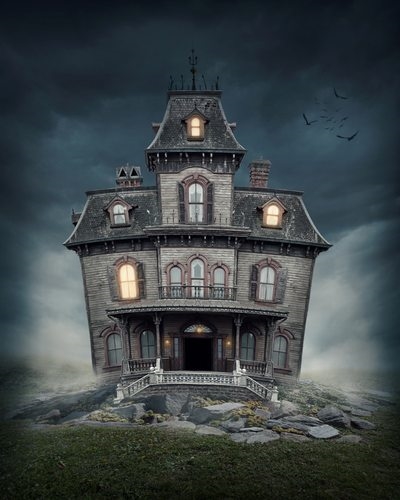They’re Creepy & They’re Kooky
As we approach Halloween, there are millions of people flocking to their favorite haunted house to scream and be scared. I’m not one of them. I’ve never understood the concept of paying someone to scare you, and I’m not too keen of screaming in public LOL. These haunted houses are crafty, and well put together. But what about the real haunted houses and the homes where people claim ghost sightings.
Stigmatized Properties
Stigma (noun)
stig·ma | \ˈstig-mə
A mark of disgrace associated with a particular circumstance, quality, or person.
In real estate, a stigmatized property is a house, dwelling, or place of occupancy that buyers or tenants avoid for reasons unrelated to its physical features or condition. These include the death of an occupant, murder, suicide, ghost sightings, and more. As you can imagine, selling a stigmatized property can be a challenge.
Are Sellers Required To Disclose?
In the State of Illinois, no. Listing agents and sellers in Illinois do not have a legal duty to disclose a stigma, such as the fact that the house was the site of a violent crime. It is worth noting that real estate brokers do have an obligation to be honest. Thus, if asked the question, the broker should answer honestly if permitted by his seller client, or if the information has been otherwise published. Ultimately, a seller should use commonsense and disclose information that materially affects the price of the property, and that the buyer wouldn’t have been expected to ask about.
Can A Stigmatized Property Sell?
Most houses can eventually be sold no matter what happened in their past. It is very rare for a property to lose all value. It is usually a matter of discounting the property until a buyer is found. In some cases, a property can be leased or rented. In rare cases, a stigmatized house is torn down and replaced with a new residence.
Take the infamous posh condo that will forever be remembered as the scene of a horrific crime. Nicole Brown Simpson bought the condominium in Brentwood, an upscale neighborhood of Los Angeles, for $625,000 in January 1994, five months before her death. After the brutal murders, the property sat on the market for two years before being sold for $525,000, according to public record. After an extensive remodeling—and a clever address change—the house sold again in 2006, for $1.72 million.
Do Your Homework
You can ask your real estate agent “how is this neighborhood?”, however don’t expect a straight answer. Your agent isn’t purposely giving you the run-around. Certain details about a neighborhood or community can violate the Fair Housing Act, which was enacted in 1968 to eliminate housing discrimination.
This is why it’s important for buyers to do their homework. A simple address search in Google could provide some insight on the property of interest. Check out the sex offender registry. Drive past the neighborhood during different times of the day and see what you observe. If all else fails, as the nosey neighbor. Every neighborhood has one.
Happy Halloween!

